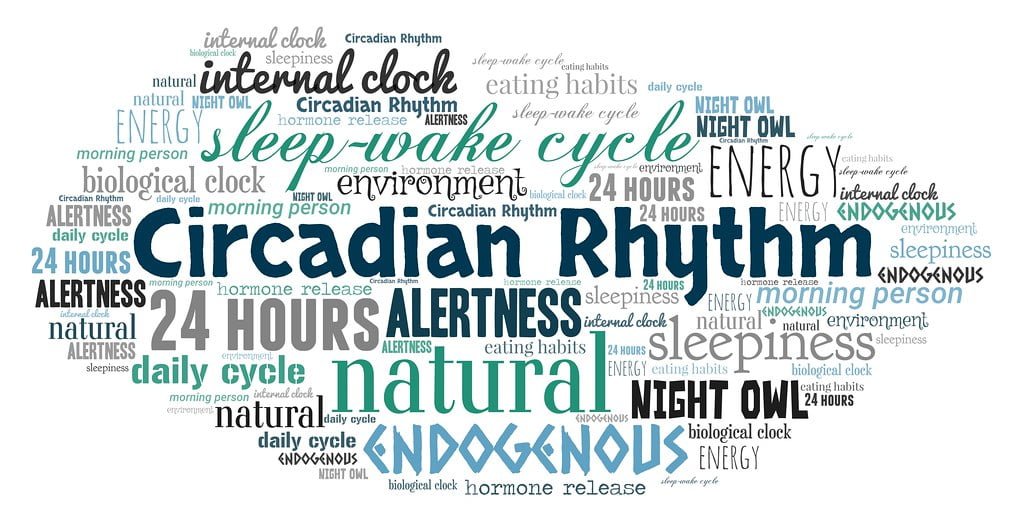The Science Behind Sleep
Have you ever wondered why we sleep? Or why some nights we wake up feeling refreshed and energized, while other nights we toss and turn, unable to find rest? The answer lies in the fascinating world of sleep science, where researchers have been studying the physics of sleep for decades. Today, we will delve into two key aspects of sleep: circadian rhythms and REM cycles, and how they impact our overall sleep quality.
On This Page
Table of Contents
Understanding Circadian Rhythms
Our bodies have an internal clock that regulates our sleep-wake cycle, known as the circadian rhythm. This internal clock is influenced by external cues, such as light and darkness, and helps us maintain a regular sleep pattern. The circadian rhythm is controlled by a part of the brain called the suprachiasmatic nucleus (SCN), which responds to light signals received by the eyes.
During the day, when the sun is up, the SCN sends signals to the brain to release hormones like cortisol, which helps us stay awake and alert. As evening approaches and darkness sets in, the SCN triggers the release of melatonin, a hormone that promotes sleepiness and prepares our bodies for rest. This natural ebb and flow of hormones is what keeps our sleep-wake cycle in sync with the 24-hour day.
However, disruptions to our circadian rhythm can occur due to various factors, such as shift work, jet lag, or excessive exposure to artificial light at night. These disruptions can lead to sleep disorders and have a negative impact on our overall health and well-being.
The Role of REM Cycles
While the circadian rhythm governs our sleep-wake cycle, another crucial aspect of sleep is the REM (rapid eye movement) cycle. REM sleep is a stage of sleep characterized by rapid eye movements, vivid dreaming, and heightened brain activity. It is during this stage that we experience the most intense dreams.
REM sleep plays a vital role in memory consolidation, learning, and emotional regulation. It is believed to be essential for cognitive function and overall mental well-being. During REM sleep, the brain processes and stores information from the day, helping us retain important memories and discard irrelevant ones.
Interestingly, the length of REM cycles varies throughout the night. In the beginning, REM cycles are shorter, lasting around 10 minutes. As the night progresses, REM cycles become longer, with the final cycle lasting up to an hour. This is why we often wake up from a dream in the morning, as we are more likely to be in the REM stage during that time.
Optimizing Your Sleep: Tips and Tricks
Now that we understand the importance of circadian rhythms and REM cycles, let’s explore some practical tips for optimizing our sleep:
1. Stick to a Consistent Sleep Schedule
Try to go to bed and wake up at the same time every day, even on weekends. This helps regulate your circadian rhythm and trains your body to fall asleep and wake up more easily.
2. Create a Sleep-Friendly Environment
Make sure your bedroom is cool, dark, and quiet. Use blackout curtains or an eye mask to block out any unwanted light, and consider using earplugs or a white noise machine to drown out any noise disturbances.
3. Limit Exposure to Electronic Devices Before Bed
The blue light emitted by electronic devices such as smartphones, tablets, and laptops can interfere with the production of melatonin, making it harder for you to fall asleep. Try to avoid using these devices for at least an hour before bed, or use a blue light filter to minimize the impact.
4. Practice Relaxation Techniques
Engage in activities that help you relax before bed, such as reading a book, taking a warm bath, or practicing deep breathing exercises. These activities can help signal to your body that it’s time to wind down and prepare for sleep.
5. Be Mindful of Your Caffeine and Alcohol Intake
Caffeine is a stimulant that can interfere with your ability to fall asleep, so it’s best to avoid consuming it in the late afternoon and evening. Similarly, while alcohol may initially make you feel drowsy, it can disrupt your sleep later in the night, leading to fragmented and less restful sleep.
Wrap-up
Understanding the physics of sleep, particularly the role of circadian rhythms and REM cycles, can help us optimize our sleep and improve our overall well-being. By prioritizing a consistent sleep schedule, creating a sleep-friendly environment, and adopting healthy sleep habits, we can harness the power of sleep to wake up feeling refreshed, rejuvenated, and ready to take on the day.

